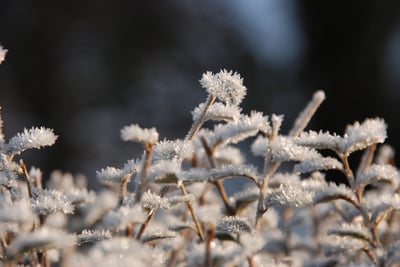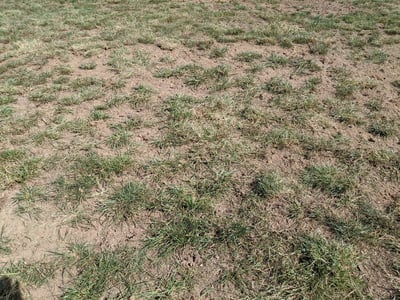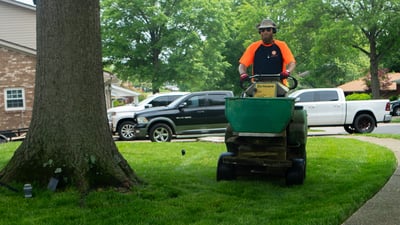

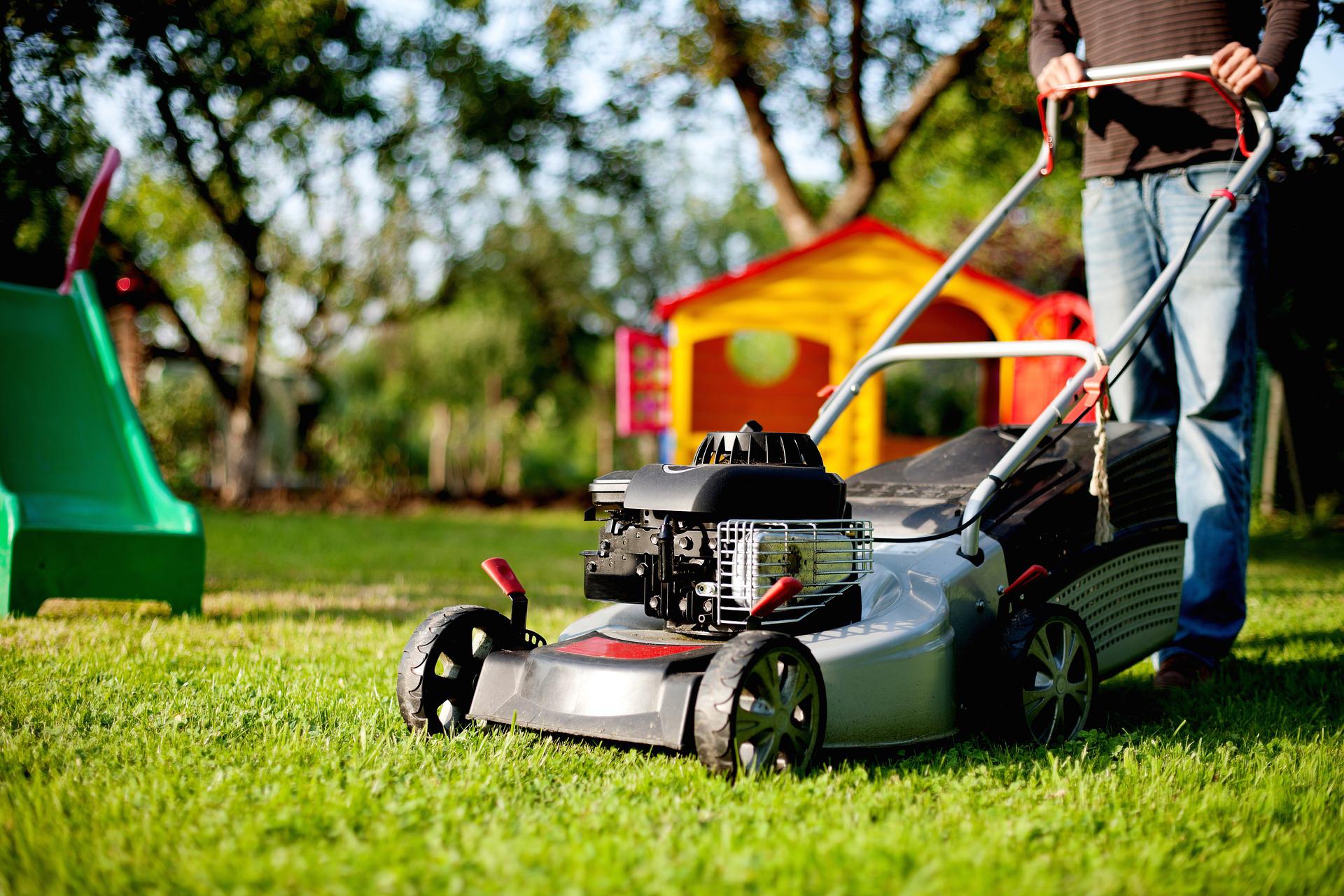
Mowing a lawn typically sounds like one of the easiest lawn care tasks out there. And in many ways, this routine task is pretty simple.
It’s just a matter of pushing (or driving) a mower around your Louisville property.
However, homeowners are often surprised to learn how much mowing can impact their lawn care results. Poor mowing habits can lead to problems in the lawn’s color, thickness, and overall vigor.
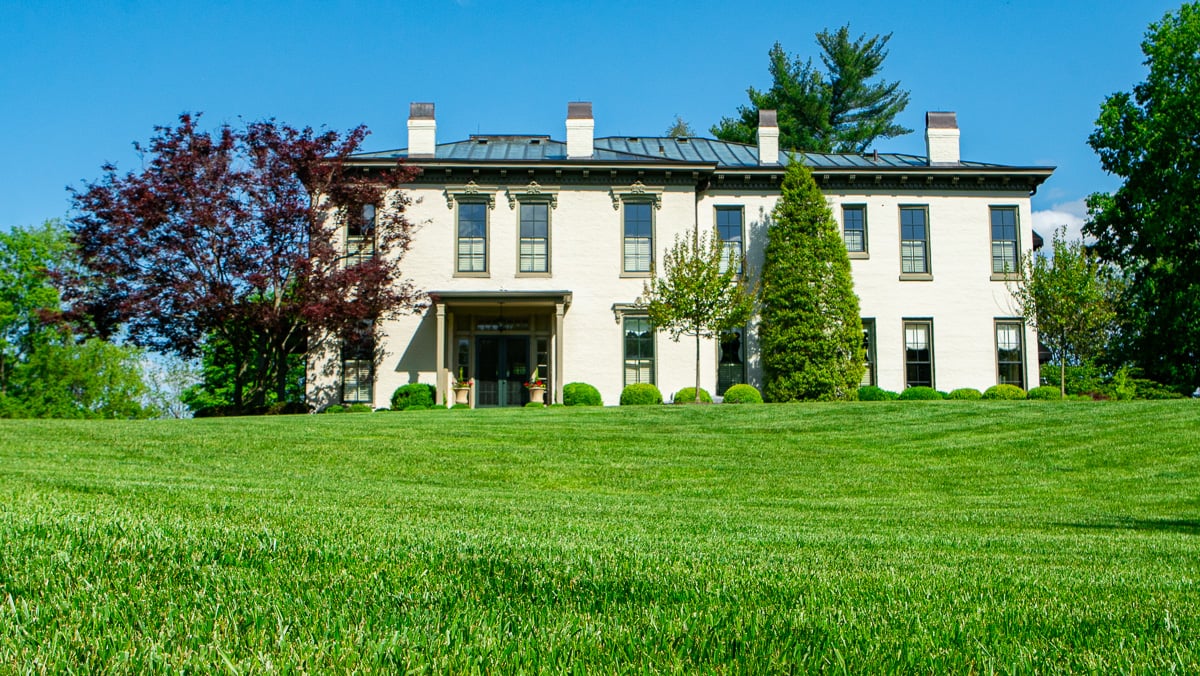
While we’d never claim that grass mowing is rocket science, there are some important things to know about this service. At Limbwalker, we do not offer lawn mowing services, but we do have some advice for homeowners on the proper way to go about cutting grass.
Because mowing the lawn will have an impact on your lawn care results, we want to help ensure that you understand the best way to go about it. Most importantly, we want to help you avoid some common mowing mistakes that can detract from your lawn care success.
One of the biggest mistakes that homeowners make is cutting grass too short. We know that people love a well-manicured, short lawn. But did you know that there is an optimal mowing grass height for different grass types?
When you cut the lawn shorter than it was meant to be cut, you put a tremendous amount of stress on it.
For turf type tall fescues in our region, we generally recommend setting your mower to the highest level of four inches. We know that this is taller than people sometimes want but that will promote a healthy lawn with deep roots.
The trouble with cutting grass much shorter than that is that the root system grows shallow. To have healthy grass, you really want to encourage deeper roots that grow further down into the soil.
Taller grass also happens to be greener grass. That’s because taller grass has more leaf tissue, which is where the process of photosynthesis is taking place. In other words, when cutting grass short, you actually affect the ability of your grass plants to produce food and grow green and healthy.
This is a key reason why short lawns tend to turn yellow.
Cutting the lawn too short can also promote weed growth. A taller-cut lawn will have better moisture retention and start to crowd out opportunistic weeds that are trying to creep in.
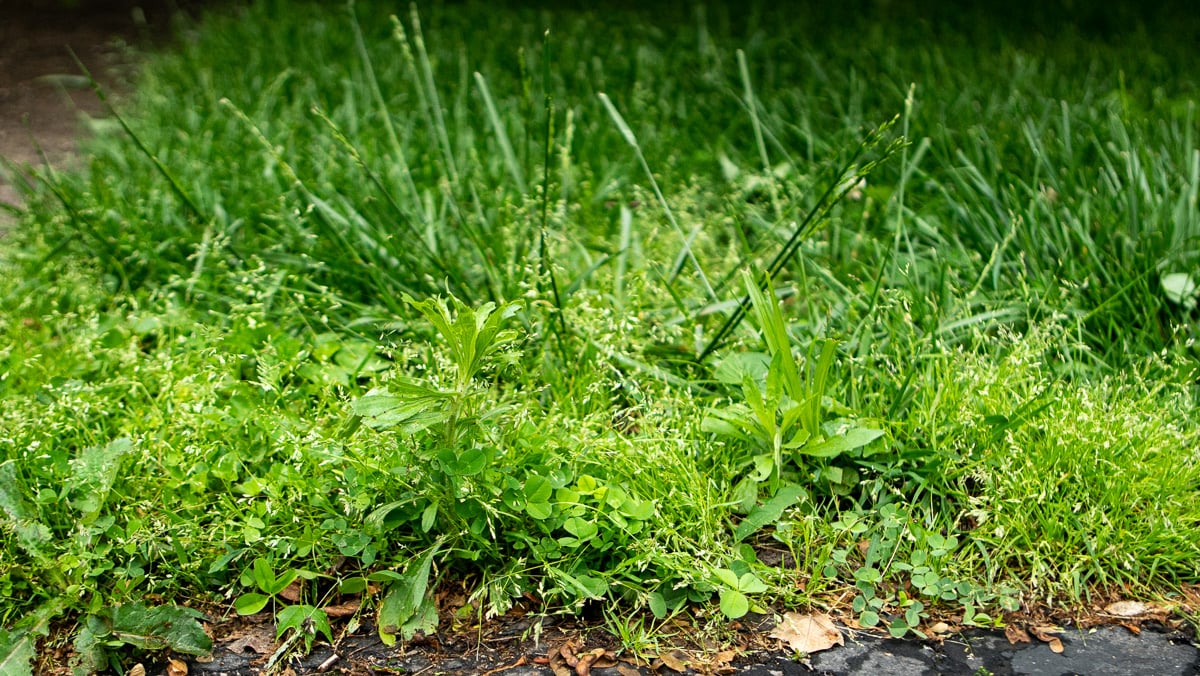
Another grass-mowing mistake is mowing infrequently. We understand that life gets busy and mowing the lawn is a task that gets pushed to the side. But just like mowing the grass too short is stressful for the lawn, so are infrequent mowing habits.
When too much time lapses between mows, you have to make a larger cut to keep up. But cutting a significant portion of the grass blade is very stressful on the lawn. People don’t always think about the fact that mowing is stressful for a lawn. You’re making cuts from which the grass has to recover.
Because of this, you don’t want to cut too much at once. We recommend cutting no more than one-third of the grass blades at a time. Anything more is just really stressful on the grass.
If you’ve fallen behind on mowing, you’ll want to make several cuts to catch up rather than going with a drastic cut.
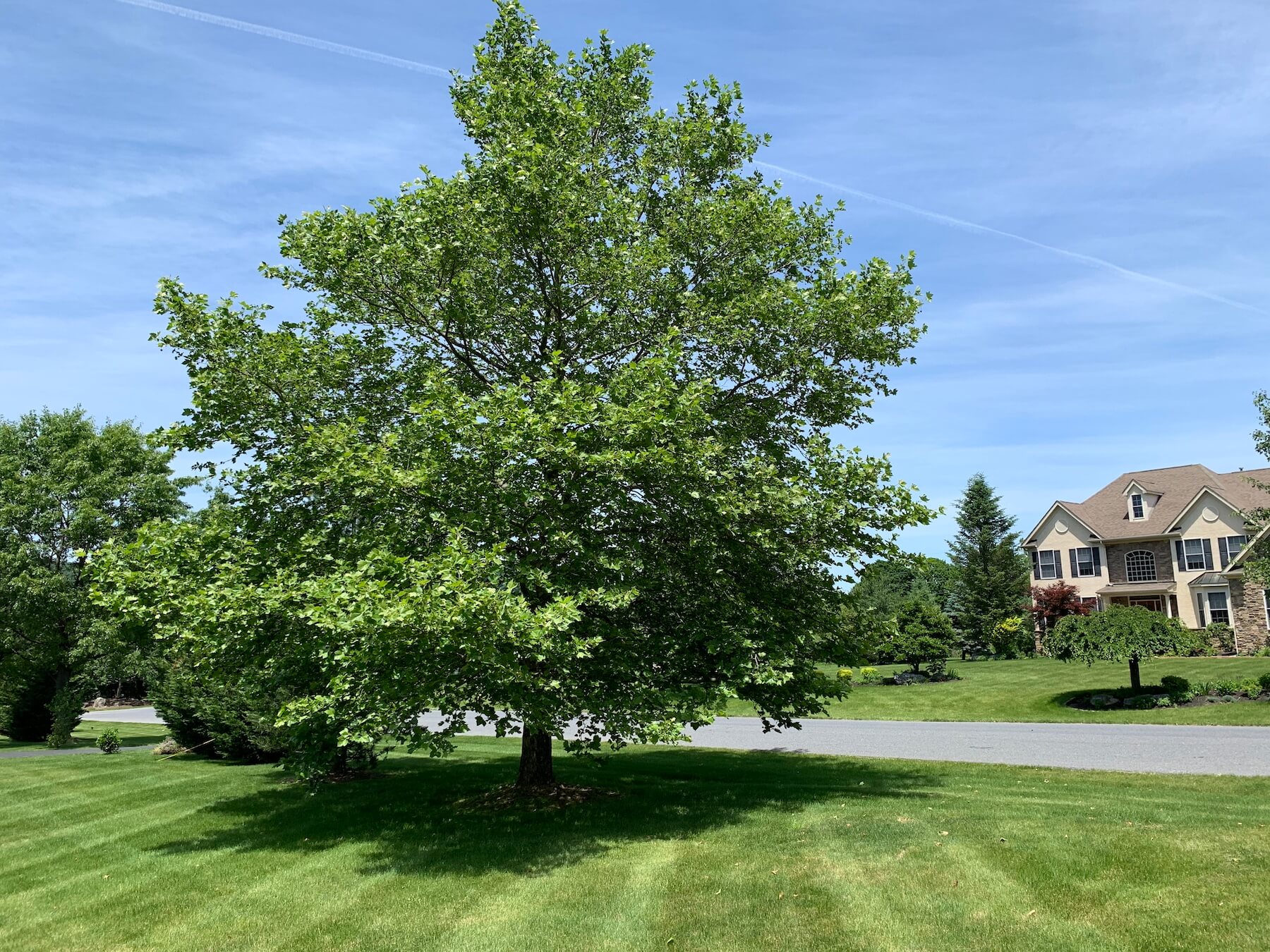
Homeowners don’t always consider the way in which equipment can have an impact on mowing a lawn. But when you mow with dull blades or an unlevel deck, you put additional stress on the lawn. That’s because you are producing an uneven cut.
Instead, make sure that you are sharpening your mower blades at the end of every mowing season so that you’re making a nice, clean cut. Also, make sure that your mower deck is level and that the tires are well-inflated. Many mowing dealerships will do this for a reasonable fee.
Unfortunately, even some professional mowers aren’t good at maintaining their equipment. If your lawn is turning yellow after mowing, it could be that your lawn is being mowed with dull blades and poor-quality equipment.
Once you’re done mowing the lawn, you also want to take care to be cautious about your trimming habits. It’s quite common for homeowners (and even some “pros”) to scalp the edges of the lawn when trimming along hardscaping like the driveway or sidewalk.
Unfortunately, these areas become hot spots for crabgrass growth.
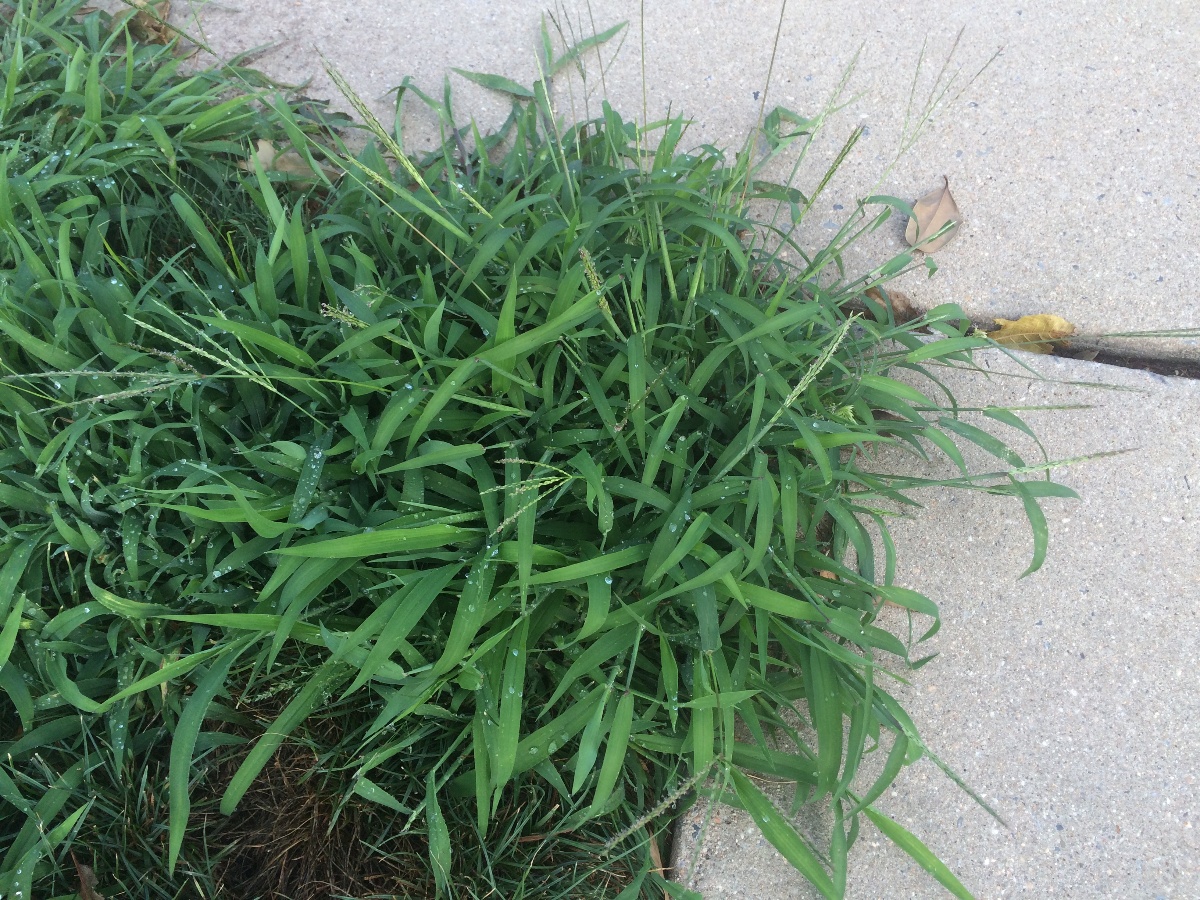
When you scalp the edges of your lawn, you make it difficult for healthy grass to grow there. It’s cut too short and will begin to struggle. These areas are already problem spots because they tend to really heat up being right next to hardscaping.
All of this creates the perfect conditions for opportunistic crabgrass, which actually prefers those hot zones where they don’t have to compete against healthy and thriving turf.
Even though we do not offer grass mowing as a service, we care about how you’re mowing your lawn because we want to see you get the best possible results.
After all, if you are investing in our lawn care program, then you deserve to see amazing results. But when you make mowing mistakes, you can detract from your success.
As we’ve mentioned, sometimes it’s even a professional mowing service that is making some of these grass-cutting errors. If that’s the case, it makes sense to have a conversation with them about what can be improved.
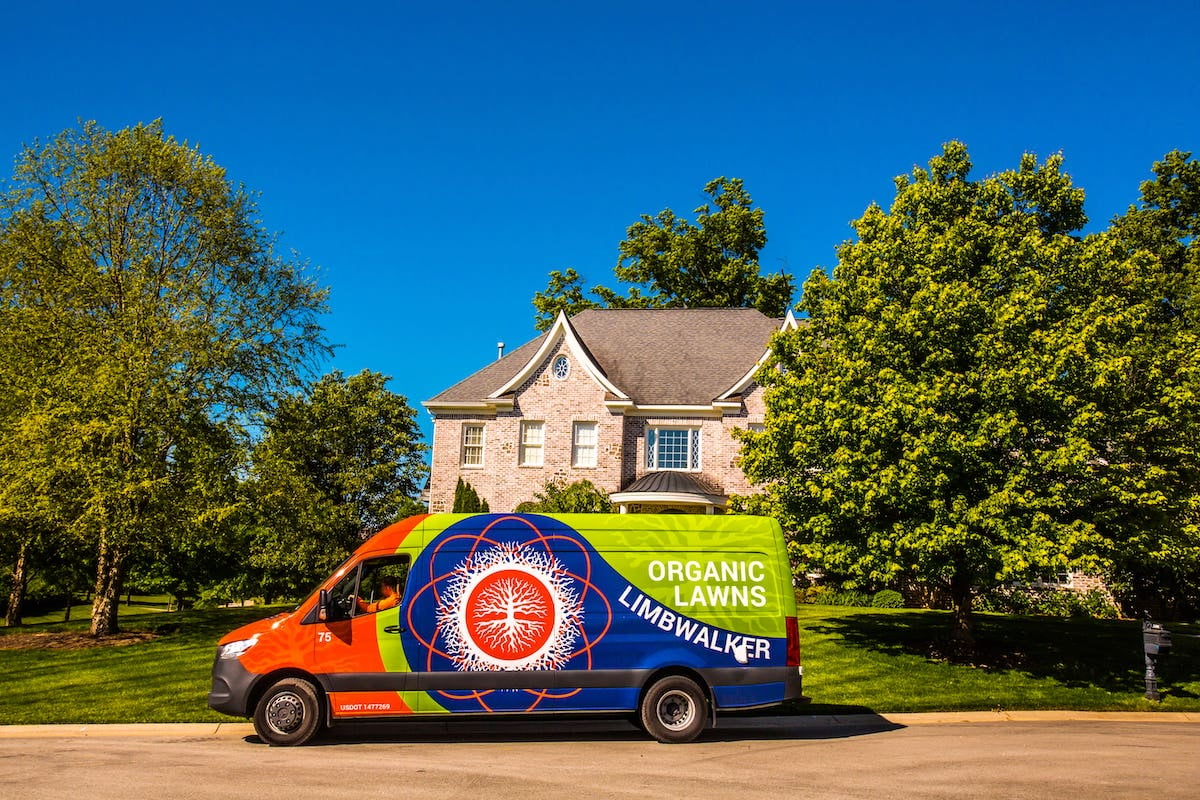
At Limbwalker, we’re always here to offer advice, even when it has to do with services that we don’t offer ourselves. We believe that the best lawns are the result of a strategic partnership between you (the homeowner) and us (the lawn care pro).
We’re always available to provide advice and tips that will help you see better results from your lawn. Together, we can have lawn care success.
Are you ready to have a thick and healthy lawn that’s getting everything it needs at your Louisville, KY home? Get in touch with us to get a quote for our lawn care programs, which include three lawn care pricing options.


